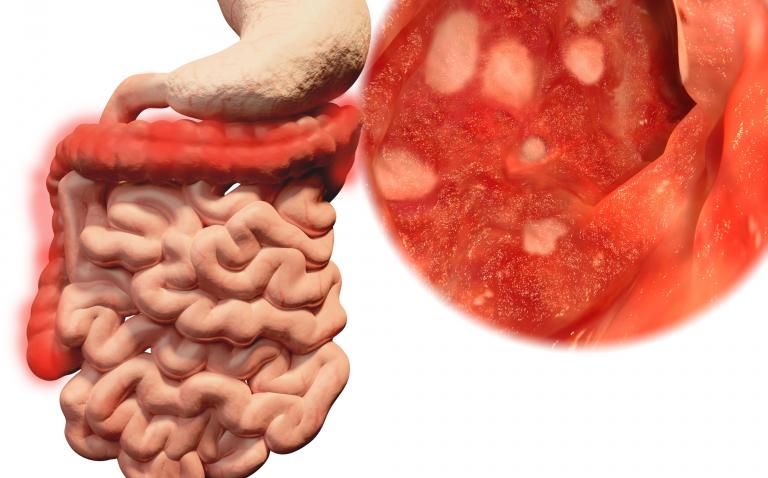Abivax, a biotechnology company harnessing the immune system to develop treatments for inflammatory/autoimmune diseases, infectious diseases and cancer, has announced that the Data Safety Monitoring Board (DSMB) has recommended continuation of its ongoing 12-month open-label maintenance extension study, ABX464-102, continuing its completed randomised, placebo-controlled Phase IIa induction trial, ABX464-101.
ABX464-101 was conducted with 32 patients for induction treatment of moderate-to-severe ulcerative colitis (UC), refractory to anti-TNF monoclonal antibodies or corticosteroids. The final data from this two-month double-blind clinical study indicated that ABX464 was safe, well-tolerated, and demonstrated statistically significant efficacy based on both clinical and endoscopic endpoints in this study. The difference between ABX464 and placebo in colorectal mucosal healing was statistically significant (p<0.03). Furthermore, the onset of the therapeutic effect of ABX464 was rapid, with a difference of the reduction of the partial Mayo score between ABX464 and placebo being observed at the first assessment following treatment for two weeks, which became significant (p<0.02) at eight weeks (likelihood ratio Chi-square test). Similarly, the difference of the reduction of the total Mayo score after eight weeks was statistically significant (p<0.03).
Based on the long-term results of ABX464 (5 to 12 months of treatment already completed in induction and/or maintenance studies), the study’s DSMB recommended continuation of the maintenance study and, in addition, granted a positive opinion regarding a second extension for an additional 12 months, making ABX464-102 into a 24-month extension study. The protocol amendment is being submitted to regulatory authorities this week.
“We are very pleased, as the extension of the ABX464-102 maintenance study from 12 to 24 months was proposed by the investigators based on medical benefit and was initially requested by trial patients, suffering from this chronic disease, who wanted to ensure continued access to ABX464 treatment,” said Jean-Marc Steens, MD, Chief Medical Officer of Abivax.
“I strongly support the recommendation of the Data Safety Monitoring Board to not only continue the current one year maintenance study, but also to extend the study for a second year, which we expect can be very beneficial for the patients currently receiving ABX464,” said Prof Severine Vermeire, MD, Head of the IBD centre at the University Hospitals Leuven, Belgium, former President of the European Crohn’s and Colitis Organization and Principal Investigator of the study. She added: “Patients with this devastating disease are in urgent need of innovative treatments, as too many of them do not respond or stop responding to current drugs. We fully support Abivax in its efforts to further develop this promising compound both in ulcerative colitis as well as in other inflammatory diseases including Crohn’s disease. As the principal investigator I look forward to the initiation of the Phase IIb dose-ranging study of ABX464 in ulcerative colitis.”
At the end of the completed two-month induction treatment study, 22 Patients (15 previously treated with ABX464 and 7 on placebo) were transferred to the 12 months open-label maintenance study with ABX464. As of today, 20/22 patients have completed at least five months of treatment in the maintenance study, with one patient being treated with ABX464 for more than one year.
“The favourable safety and medical benefit observed in this study further strengthen our commitment to bring ABX464 to the many patients with ulcerative colitis and other inflammatory diseases, like Crohn’s disease and rheumatoid arthritis, who are not adequately helped by current therapies,” said Prof Dr Hartmut J Ehrlich, MD, CEO of Abivax. “We will submit the already completed protocol of our previously announced Phase IIb dose-ranging study in 250 patients with moderate to severe ulcerative colitis to regulatory authorities in January 2019, followed by Phase IIa clinical trial submissions in rheumatoid arthritis and Crohn’s disease during Q1 of 2019.”










